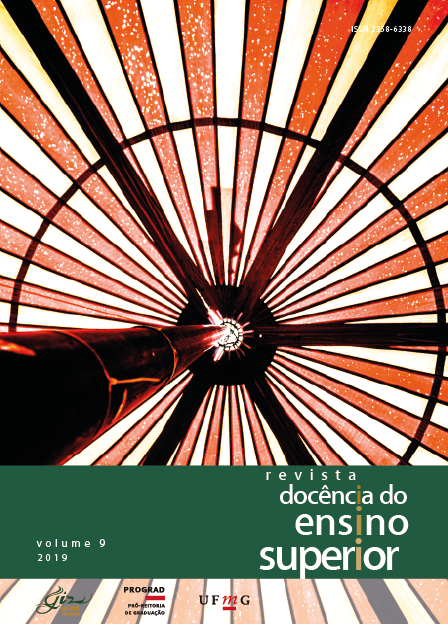Project-Based Learning
experience report on Analytical Geometry discipline
DOI:
https://doi.org/10.35699/2237-5864.2019.2600Keywords:
Active methodologies, Project-Based Learning, Higher education, Analytical GeometryAbstract
The article reports the experience of Engineering courses at Positivo University from the need to engage students and develop the highest order skills in Anderson's Taxonomy et al. (2001). In the context of pedagogical practices, a Project-Based Learning was developed with students of the first year of Engineering. The didactic sequences articulate theory and practice, favoring the study of conic, quadratic, cylindrical surfaces and their applications. Specifically, Project-Based Learning was used as a methodological strategy to make classes more interactive, reducing student passivity, developing autonomy and engagement from real problems and situations. The results of the experiment demonstrated a significant difference in student performance in the assessments that involved the proposed study themes.
Downloads
Downloads
Published
How to Cite
Issue
Section
License
Authors who publish in this journal retain the copyright and grant the journal the right of first publication, with the work simultaneously licensed under the Creative Commons Attribution License which allows the sharing of work with acknowledgment of authorship and initial publication in this journal.
Authors are authorized to take additional contracts separately, for non-exclusive distribution of the version of the work published in this journal (e.g. publish in institutional repository or as a book chapter), with acknowledgment of authorship and initial publication in this journal.
Open access policy:
Revista Docência do Ensino Superior is an Open Access journal, which means that all content is available free of charge, at no cost to the user or their institution. Users may read, download, copy, distribute, print, search, or link to the full texts of the articles, or use them for any other legal purpose, without seeking prior permission from the publisher or author, provided they respect the license to use the Creative Commons used by the journal. This definition of open access is in line with the Budapest Open Access Initiative (BOAI).
























